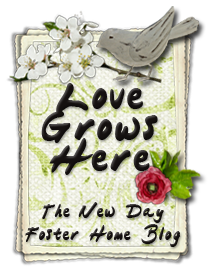Some distinctive features of Waldorf education include the following:
- Academics are de-emphasized in the early years of schooling. There is no academic content in the Waldorf kindergarten experience (although there is a good deal of cultivation of pre-academic skills), and minimal academics in first grade. Literacy readiness begins in kindergarten with formal reading instruction beginning in grade one. Most children are reading independently by the middle or end of second grade. (note- I think you are all well-aware of my feelings towards early literacy, so I don't totally agree with this and would certainly be teaching my children from a very early age to read and hope to give them a love of reading. I want my children reading before second grade! )
- During the elementary school years (grades 1-8) the students have a class (or "main lesson") teacher. The ideal and goal is that the class teacher stays with the same class for the entire eight years of elementary school. This, however, is not always the case, for many different reasons, one being the high demand this puts on the versatility of the teacher
- Certain activities which are often considered "frills" at mainstream schools are central at Waldorf schools: art, music, gardening, and foreign languages (usually two in elementary grades), to name a few. In the younger grades, all subjects are introduced through artistic mediums, use the children respond better to this medium than to dry lecturing and rote learning. All children learn to play recorder and to knit. (I love this! I want my children learning other languages from an early age, and I love the idea of them learning to knit!)
- There are no "textbooks" as such in the first through fifth grades. All children have "main lesson books", which are their own workbooks which they fill in during the course of the year. They essentially produce their own "textbooks" which record their experiences and what they've learned. In some schools upper grades may use textbooks to supplement skills development, especially in math and grammar.
- Learning in a Waldorf school is a noncompetitive activity. There are no grades given at the elementary level; the teacher writes a detailed evaluation of the child at the end of each school year.
- The use of electronic media, particularly television, by young children is strongly discouraged in Waldorf schools.
With regards to the first point, they specifically mention reading...
9. How is reading taught in a Waldorf school? Why do Waldorf students wait until 2nd grade to begin learning to read?
Waldorf education is deeply bound up with the oral tradition, typically beginning with the teacher telling the children fairy tales throughout kindergarten and first grade. The oral approach is used all through Waldorf education: mastery of oral communication is seen as being integral to all learning.
Reading instruction, as such, is deferred. Instead, writing is taught first. During the first grade year the children explore how our alphabet came about, discovering, as the ancients did, how each letter's form evolved out of a pictograph. Writing thus evolves out of the children's art, and their ability to read likewise evolves as a natural and, indeed, comparatively effortless stage of their mastery of language.
Interesting approach, wouldn't you say? I still want my children reading well before then...
Thoughts? Opinions?























6 comments:
I know nothing, but interesting post!
i've never actually heard of "Waldorf" but it sounds in the same vein as Montessori.
i think there are elements of an education designed like this that would work for enhancing/building certain skills, and would be more successful for certain kids.
personally i love structure and believe it's essential to learning, especially for younger children. my big knock against Montessori is that kids aren't "forced" into any curriculum they don't show interest in. to me that just reinforces bad behavior and them thinking they never have to do anything they don't want to do... not really a good lesson to prepare anyone for REAL LIFE.
that being said, i believe i'm going to try Montessori for the pre-school years with my children. i think that's a good time to let them do what they want and also learn... but after that it's regular school curriculum where they'll have to participate in everything... no matter what they're "interested" in.
I remember learning to read in pre-school and by 2nd grade was pretty much reading whatever I wanted by myself.
The other thing I can somewhat relate to is having the same teacher for several years. For 3rd through 5th grade I was in a magnet program. The magnet program was made up of 30 students per grade and 3 teachers. Throughout the 3 years you'd have the same teachers but for different subjects. For example, your main teach for 3rd grade, you would have for math and science in 4th grade, and for history in 5th grade. So by the end of the 3 year not only were you really close to your class but all 3 of the teachers. I loved the way it worked!
Hmm, I've never heard of this, but I studied literacy in school and I am of the theory that you should start young. Perhaps not as rigid as they present literacy in public schools, but definitely still exposing and teaching them the basic reading skills.
Hi there! We actually do *mostly* Waldorf education in my home. Waldorf homeschooling isn't all that common, so we have had to tweak a few things. Your post was correct in all its main points...Rudolf Steiner (founder of Waldorf) had many educational theories, but they all focused on the natural world being a child's greatest teacher. Emphasis is on educational/sensory experiences, not specific learning tasks. Children are typically taught the alphabet and begin reading in kindergarten/first grade. I have found with my kiddos that because we don't watch TV, they pick up reading and language much sooner than that. Waldorf doesn't discourage early literacy, it's simply a byproduct of the entire program. We find Waldorf education to be a gentle, holistic, and natural approach to not only learning, but parenting as well!
Genial fill someone in on and this post helped me alot in my college assignement. Gratefulness you for your information.
Post a Comment